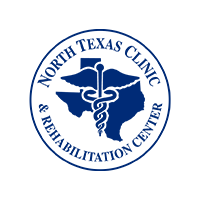If you’re like many people across the country, one of your New Year’s Resolutions might be to quit drinking completely or cut back on your alcohol consumption. One of the incredible benefits of Dry January is helping people reach this amazing goal.
Dry January has become a time for many people to pause their alcohol consumption and reflect on its impact on their lives and health. Beyond the social benefits of taking a break, abstaining from alcohol for a month can have significant, positive effects on your body—especially if drinking has been a regular part of your routine.
How Drinking Affects Your Body
Alcohol consumption impacts nearly every organ in your body. Regular drinking, even in what feels like moderate amounts, can take a toll on your bodily systems.
Some of the ways regular drinking affects your health include:
The Heart
- Increased Blood Pressure — Alcohol can raise your blood pressure, putting stress on your cardiovascular system and increasing your risk of heart disease or stroke.
- Irregular Heartbeats — Heavy drinking can lead to arrhythmias or irregular heart rhythms, which are dangerous if left unmanaged.
- Weakened Heart Muscle — Chronic alcohol use can weaken the heart muscle, a condition called alcoholic cardiomyopathy, which makes it harder for the heart to pump blood effectively.
The Liver
- Toxin Overload — The liver works hard to process alcohol, but excessive consumption over time can lead to inflammation, fatty liver, or even permanent damage such as cirrhosis.
- Impaired Function — The liver plays a key role in regulating bodily processes, and its diminished capacity can affect digestion, hormone balance, and detoxification.
The Digestive System
- Irritation: — Alcohol irritates the stomach lining, which can lead to acid reflux, ulcers, or gastritis.
- Nutrient Absorption Issues — Drinking can interfere with the absorption of essential nutrients like vitamins B1, B6, and folic acid, potentially leading to deficiencies.
- Gut Bacteria Problems — Our gastrointestinal (GI) tract relies on ‘good’ bacteria for proper digestion and immune function. Regular alcohol consumption can reduce the amount of good bacteria you have, leading to worse digestion, liver problems, and immune issues.
The Brain
- Cognitive Impairment — Regular drinking can interfere with memory and decision-making.
- Mood Disorders — Alcohol can exacerbate anxiety and depression, creating a vicious cycle that’s hard to break.
Whole Body
- Weight Management — Alcohol can add a significant amount of sugar and calories to your diet, making it more difficult to manage your weight. On top of empty calories, it slows your metabolism because your body has to work to process the alcohol rather than fat and nutrients.
- Immune Dysfunction — Frequent drinking impairs your immune system throughout your body, including your lungs and stomach. It can lead to difficulty healing from infections and wounds, postoperative complications, and can even contribute to certain cancers.
- Poor Sleep — Although drinking can make you more sleepy than usual, it doesn’t lead to restive, healthy sleep because it disrupts your normal cycle and suppresses REM sleep. Inadequate sleep makes it harder for your body to function and heal the way it needs to for good health.
Over time, any of these issues can lead to chronic conditions that affect your daily living and even life expectancy. That’s why the benefits of Dry January can be very healthy for you, even if you don’t drink that often.

How Much is ‘Too Much?’
For the average adult, moderate drinking is defined as:
- Women: Up to one drink per day.
- Men: Up to two drinks per day.
One drink equals one normal-sized beer, a glass of wine, or a shot of liquor. (Check the National Institute on Alcohol Abuse and Alcoholism for more specific sizes and visual illustrations.)
Binge drinking (four or more drinks in roughly a 2-hour period for women, five or more for men) or heavy drinking (eight or more drinks per week for women, 15 or more for men) increases your risk of serious health complications.
The health risks caused by alcohol, even in small amounts, can be even more severe if you take certain medications or have chronic health conditions. Always follow your healthcare provider’s advice concerning alcohol consumption in these circumstances.
The Health Benefits Dry January
Even a short break from alcohol can offer noticeable health benefits, especially if you drink regularly. You might immediately notice getting better sleep, feeling more energized and focused during the day, and generally feeling better.
Your body will quickly begin to recover, as well. Some of those benefits include:
- Improved Heart Health — Taking a break can lower blood pressure, improve cholesterol levels, and reduce the risk of heart-related complications.
- Better Liver Function — The liver has a chance to repair itself, reducing inflammation and improving overall function.
- Stronger Immune System — Drinking weakens your immune response, making you more susceptible to illness. Abstaining can strengthen your body’s natural defenses.
- Weight Management — Alcohol is calorie-dense, and cutting it out can help with weight loss or maintenance.

Risks Don’t Outweigh the Benefits of Dry January
Light or occasional drinkers typically don’t have to worry about any drawbacks to quitting drinking, either for a month or for good. Even many regular drinkers will only experience the benefits of Dry January. However, anybody can experience withdrawal-like symptoms when they suddenly stop something they habitually do.
Alcohol withdrawal symptoms can range from mild discomfort to life-threatening emergencies. Those who are heavy drinkers or have coexisting conditions, such as advanced age, some physical and mental health conditions, dehydration, and abnormal liver function, have a higher risk of withdrawal.
Mild symptoms include headaches, upset stomach, sweating, difficulty sleeping, and anxiety. More serious symptoms are heart palpitations, increased blood pressure and heart rate, hyperthermia, confusion or hallucinations, tremors, delirium tremens, and, if untreated, even seizures, a heart attack or stroke.
If you are concerned about the possibility of withdrawal symptoms, talk to your healthcare provider before taking a break from alcohol. There are medications and treatments that can help. And if you experience any severe or concerning symptoms, call 9-1-1 immediately.
And remember, even if you are at risk for withdrawal symptoms, they are typically temporary or safely treated with medical intervention. Once your body becomes accustomed to life without alcohol again, you’ll experience more energy, better focus, and improved health and vitality.
Resources to Help You Cut Back or Quit
One of the benefits of Dry January is that it allows you to step back, assess your relationship with alcohol, and decide what happens in February. For some, they can enjoy alcohol in a moderate and healthy way. For others, there may be an unhealthy dependence, and a more extended or permanent break is best.
If you’re concerned that slowing down or quitting will be a challenge, there are many resources you can consider to help you. These include:
- Professional Support — Talking with a professional, such as a therapist or counselor, can help you identify and manage the reasons behind your drinking. Another incredible source of help comes from support groups. Organizations like Alcoholics Anonymous (AA), church groups, or online communities provide accountability and encouragement.
- Educational Resources — There are a number of books that can help support your Dry January (and beyond) goals. These can range from personal memoirs to classic guidebooks, such as Twelve Steps and Twelve Traditions.
For the more tech-minded, stop drinking apps may be a better choice when quitting drinking. - Lifestyle Changes — Replace drinking with healthier habits like exercise, hobbies, or spending more time with family and friends. You can also experiment with non-alcoholic beverages that mimic the social drinking experience without the health risks.
- Accountability Partners — Any time you can do something with a friend or partner, your chances of success go up. Accountability partners help each other stay on track by checking in, providing reminders, and sharing both the joys and challenges of achieving goals. Even if you are only an occasional drinker, ask a friend or loved one to join you in not drinking so that you can both enjoy the benefits of Dry January.

Discover the Benefits of Dry January for Yourself
If alcohol has become a regular part of your routine, one of the most significant benefits of Dry January is an opportunity to reset. That said, if now isn’t the right time for you, don’t feel pressured to try something you’re not ready for. Putting too much stress on it might make it more challenging than is healthy.
When you’re ready to step away from drinking, remember that there are resources to help you.
So whether you’re looking to improve your heart health, sleep better, or feel more energized, taking even a short break from drinking can reveal what your body feels like without alcohol. And if you find the benefits significant, you might be inspired to make lasting changes.






